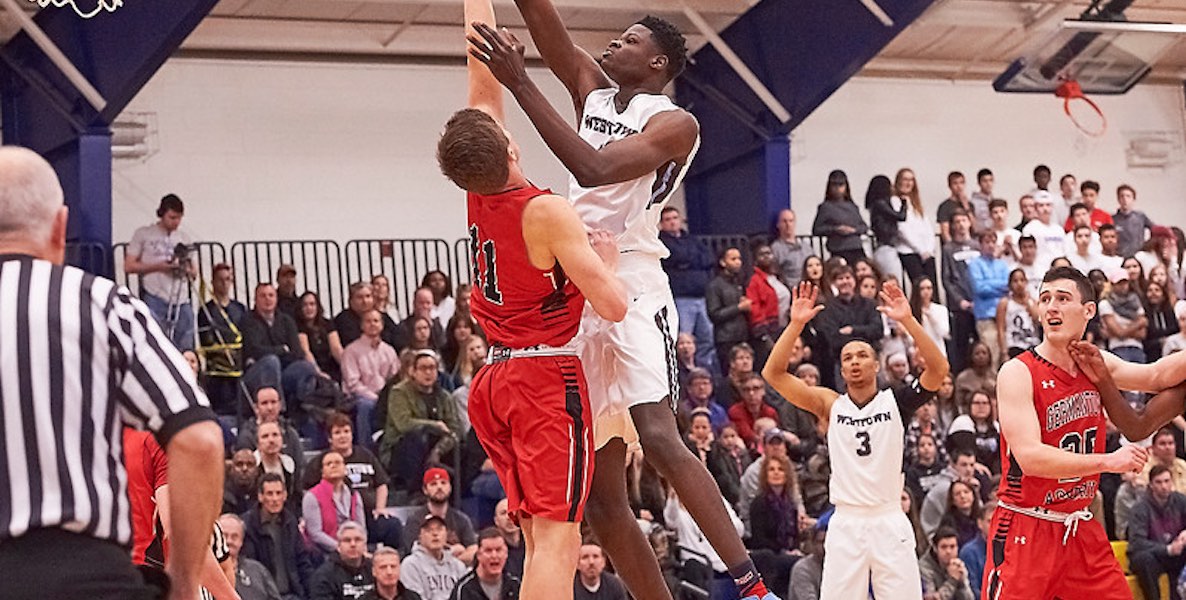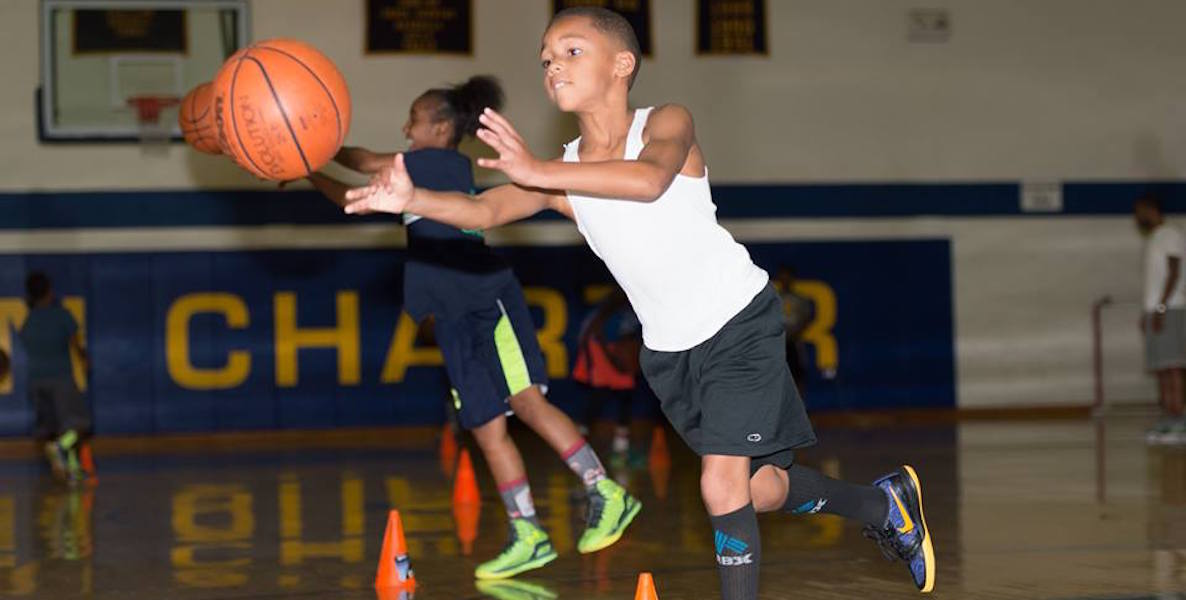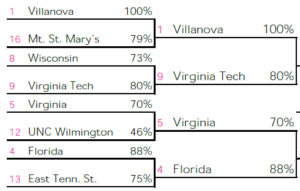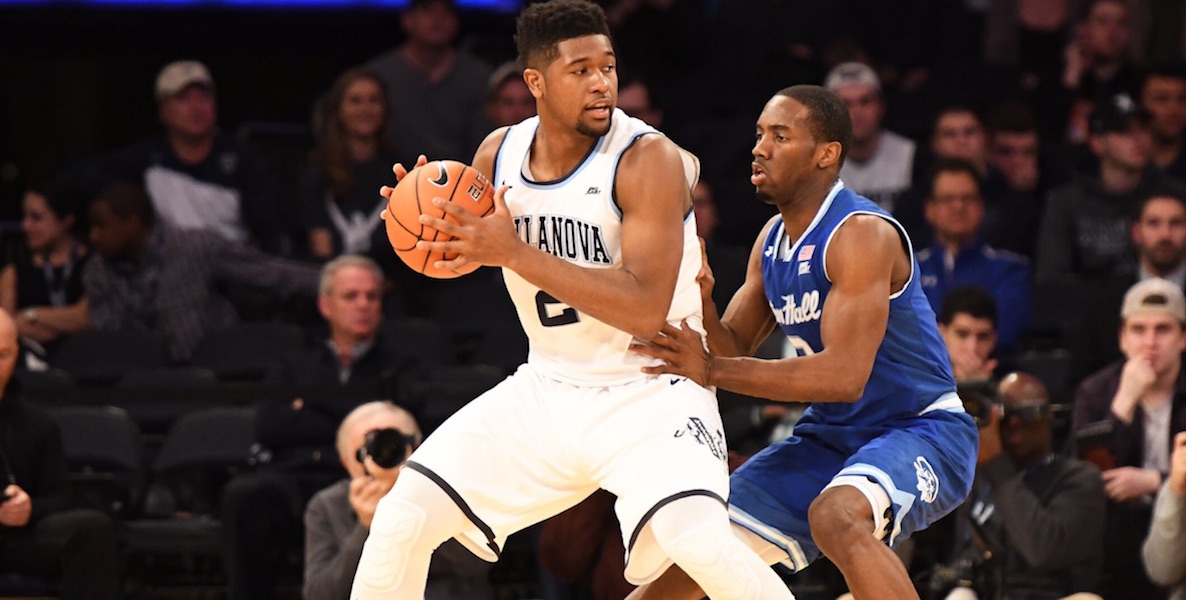During the 2014 NCAA Men’s Basketball Tournament—the thrilling sports spectacle known as March Madness—the University of Connecticut Huskies, led by their coach, former Sixer Kevin Ollie, went on an inspiring championship run. But it was that team’s performance in one specific statistical category that jumped out: It had only graduated 8 percent of its players over a six-year span.
There is ample evidence that the NCAA is a corrupt institution that exploits its players. In Indentured: The Inside Story of the Rebellion Against the NCAA, New York Times writer Joe Nocera lays bare the sham that is “amateur” intercollegiate athletics, exposing a systemic exploitation of young, primarily black athletes by institutions that purport to be places of wisdom. Division I basketball (and football, for that matter) have become too big to fail. Many athletic departments have budgets in excess of $100 million and are effectively separate, self-sustaining entities on otherwise academic campuses.
The Citizen Bracket includes another metric for each team: Graduation Success Rates—which reflects the proportion of athletes a team has graduated within a six year time frame. When the 12 teams with a 100 percent GSR meet, we take into account another metric: Academic Progress Rates—a multi-year tracking of a team’s classroom performance.
Yet, during the tournament, few in the media will point out the disgrace that big-time college sports has become. Thankfully, a few years ago, when Turner Broadcasting and CBS paid $11 billion for the rights to televise the NCAA tournament, our own Charles Barkley, who will once again be broadcasting the games (and starring in some hilarious commercials with Spike Lee and Samuel L. Jackson), had the guts to speak up. “I’m concerned about the NCAA not graduating these players,” he said. “They aren’t paying the players. I’m not going to go on a rant about where the money goes, but you have an obligation to graduate these players.”
So what is someone who loves March Madness, but who is also afflicted with a social conscience, to do? Align your fandom with your world view. That’s what I started doing a few years back, filling out my bracket by picking the schools with the best graduation rates. That way, I’m rooting for the schools that do things the right way, and I don’t feel quite as complicit in the sham system the NCAA promulgates.
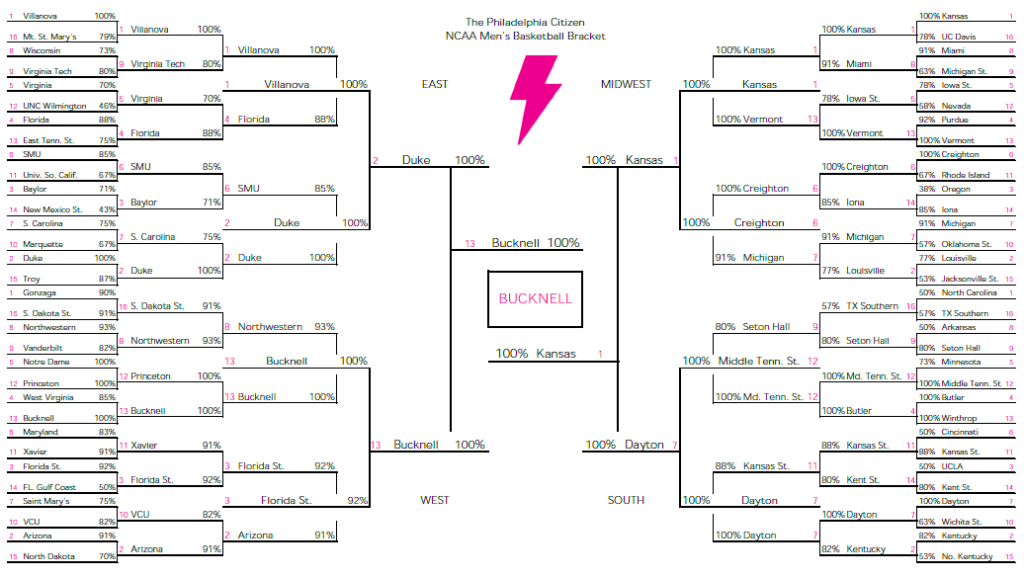
In addition to its tournament seeding, The Citizen Bracket includes another metric for each team: Graduation Success Rates (GSR), which reflects the proportion of athletes a team has graduated within a six year time frame. When the teams with a 100 percent GSR meet, we take into account another metric: Academic Progress Rates (APR), a multi-year tracking of a team’s classroom performance. (In the case of Kansas and Vermont, who have the same stats, we picked Kansas because its basketball ranking is higher.)
Data has been taken from the just-released annual report of The Institute for Diversity and Ethics in Sport at the University of Central Florida. According to the study, 63 of the 68 tournament teams, or 93 percent, had GSRs of 50 percent or more; 78 percent had a rate of 60 percent or more; and 69 percent graduated 70 percent or more. Twelve teams posted a GSR of 100 percent, which means my picks will be made from this exclusive list: Kansas, Duke, Notre Dame, Butler, Bucknell, Creighton, Middle Tennessee, Princeton, Dayton, Vermont, Winthrop…and, of course, last year’s champion, our very own Villanova. The Wildcats—a number one seed in the East Region—have a good chance of repeating on the court this year, proof that it’s possible to excel at basketball and have the right values in the classroom.
Header photo: Villanova's 2016 championship team, which has a 100% GSR. Via Villanova MBB Twitter


